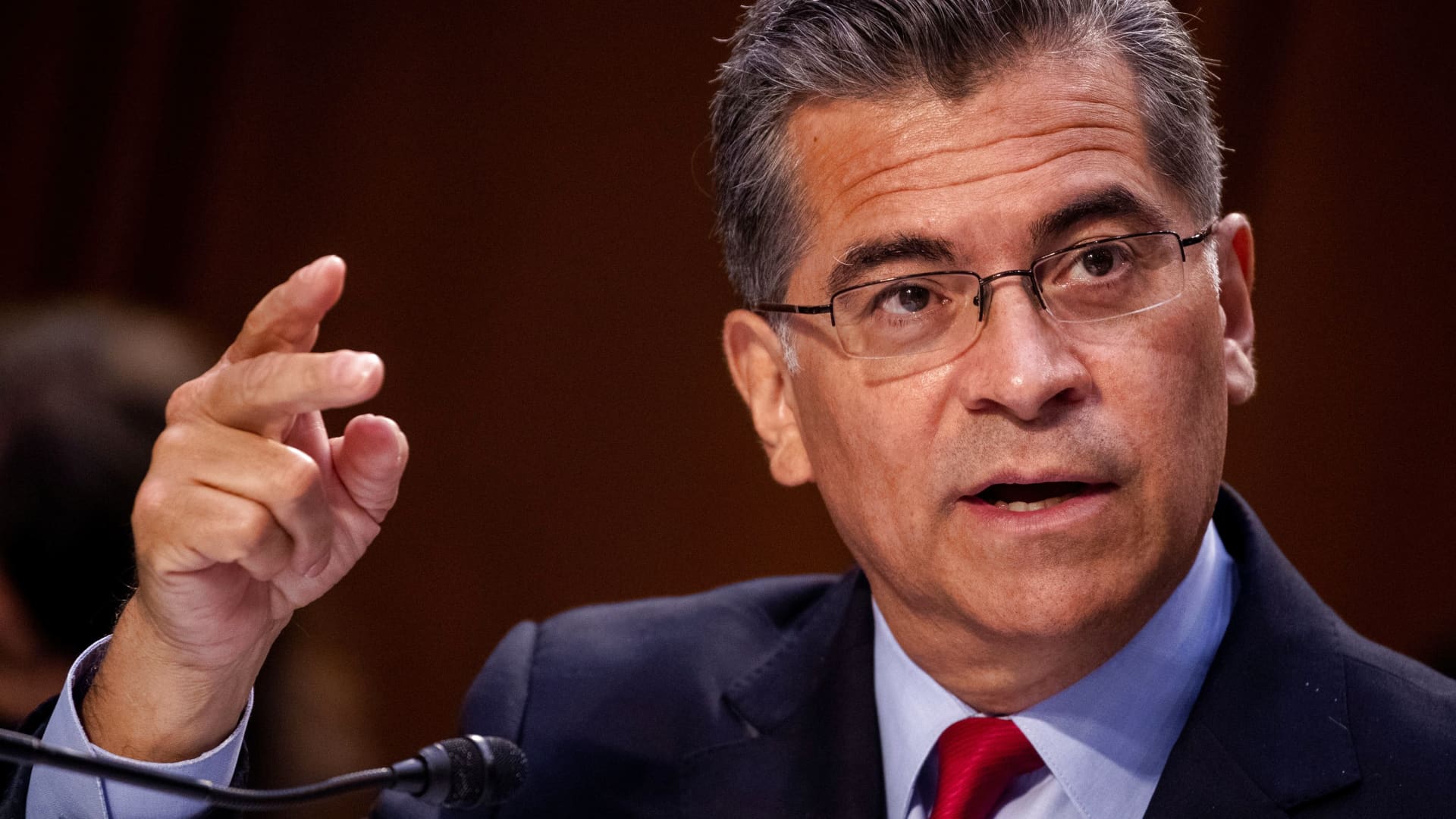Physicians must provide abortions in medical emergencies under federal law and will face penalties if they decline to offer the procedure in these cases, Health and Human Services Secretary Xavier Becerra wrote in a letter to health care providers on Monday.
Becerra said federal law pre-empts state abortion bans in cases where women face medical emergencies associated with pregnancy under the Emergency Medical Treatment and Active Labor Act. If an abortion is necessary to treat a woman facing a medical emergency, physicians must offer the procedure, the health secretary wrote.
Hospitals that decline to provide abortions in these cases could have their Medicare provider agreement terminated or face financial penalties, Becerra said. Individual physicians could also be cut from Medicare and state health programs if they refuse to offer abortions in medical emergencies, he added. Physicians can also use federal law as a defense if they face state prosecution when providing abortions in emergencies, according to HHS.
Becerra said such medical emergencies include but are not limited to ectopic pregnancies, complications from miscarriages and hypertensive disorders such as preeclampsia that usually occurs after 20 weeks of pregnancy. Preeclampsia results in high blood pressure, severe headaches and blurred vision. The condition can lead to fatal complications if untreated.
“Under the law, no matter where you live, women have the right to emergency care — including abortion care,” Becerra said. “We are reinforcing that we expect providers to continue offering these services, and that federal law preempts state abortion bans when needed for emergency care.”
President Joe Biden signed an executive order Friday directing HHS to protect abortion access. At least nine states have banned abortion since the Supreme Court overturned Roe v. Wade last month, which protected access to the procedure as a constitutional right for nearly 50 years. Several other states have tried to ban abortion but their laws have been blocked by state courts.
Although state abortion bans generally make exceptions for when the woman’s life is in danger, reproductive rights activists fear the laws will have a chilling effect on patients seeking care as well as physicians who fear prosecution. U.S. health officials worry that wary doctors could wait too long to treat ectopic pregnancies and complications from miscarriages while awaiting legal guidance.
All of the state abortion bans make performing an abortion a felony that carries prison time, the length of which varies depending on the state. Women who receive abortions are generally exempt from prosecution under the state bans, but reproductive rights group are concerned that states will move to criminalize receiving an abortion as well.
Biden also has directed HHS to take action to make the abortion pill, mifepristone, as widely available as possible and protect access to contraception.
The Food and Drug Administration approved the abortion pill more than 20 years ago as a safe and effective way to end a pregnancy before the 10th week. In December, the FDA permanently allowed the pill to be sent by mail from licensed pharmacies and health care providers. But states banning abortion are also outlawing health care providers from administering the pill.
The Center for Reproductive Rights and Democratic lawmakers have called for the Biden administration to declare a public health emergency in response to states banning abortion.
The president told reporters over the weekend that he has asked health officials in the administration to look at whether he has the legal authority to declare such an emergency to protect abortion access and what impact using the powers would have. But Jen Klein, director of the White House Gender Policy Council, said the administration concluded that declaring an emergency was not the best position to respond to states banning abortion.
“When we looked at the public health emergency, we learned a couple things. One is that it doesn’t free very many resources. It’s what’s in the public health emergency fund, and there’s very little money — tens of thousands of dollars in it,” Klein told reporters on Friday. “So that didn’t seem like a great option. And it also doesn’t release a significant amount of legal authority. And so that’s why we haven’t taken that action.”
